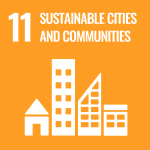
Experiencing Culture
Files
Download Full Text
Document Type
Book Chapter
Description
Cultural anthropology is a rich multidisciplinary subfield of anthropology. Cultural anthropologists’ study all aspect of people’s life simultaneously; they observe, describe and experience different cultures participating in their everyday activities for an extended period of time; compare and explain the similarities and differences among cultural groups around the world based on ethnographic accounts; study genetic predispositions to certain diseases, such as cystic fibrosis, breast cancer or haemophilia, based on kin relationships; or systematically collect narratives about people’s lives in order to interpret their behaviour.
Cultural anthropologists may specialize in different academic fields. For instance, some cultural anthropologists concentrate on anthropology of religion, other are interested in anthropology of music, anthropology of creativity, anthropology of sexuality, etc. Regardless of their different areas of expertise, the common goal of their research is to reconstruct the invisible world of ideas, beliefs, values, and customs, hidden behind religious and cult practices, witchcraft and magic rituals, art and music performances, types of families and marriages, sex and gender inequality problems, political and economic systems, languages and other forms of communication.
Publication Date
2020
Publisher
TopHat
Keywords
Cultural anthropology, cultural groups, cultural universals, cultural differences, holism relativism, ethnocentrism
Faculty
Faculty of Humanities & Social Sciences (FHASS)
Terms of Use
Terms of Use for Works posted in SOURCE.
Copyright
© TopHat
Creative Commons License

This work is licensed under a Creative Commons Attribution-Noncommercial-No Derivative Works 4.0 License.
SOURCE Citation
Boshnakova, Anna, "Experiencing Culture" (2020). Books & Chapters. 17.
https://source.sheridancollege.ca/fhass_books/17
Original Citation
Boshnakova, A. (2020) Experiencing culture. In: J. Pulis and P. Angelini (Eds.), Social and behavioural sciences: Exploring human behaviour and the environment. TopHat.




Comments
Learning Outcomes
After reading this chapter, students should be able to: